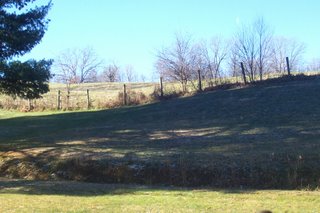boredom
But also I keep thinking about what’s the point of this book, etc.--which is fatal. Or rather, I’m thinking it now, meaning that I feel stuck and blocked, and out of sorts. I wasted the morning in doing email and blog stuff, which is annoying. I sent off a story to the Mid American Review, which I pretended was productive, but it really wasn't.
Why are Carl and Jason going to Rose Lake? Is it for a good (novelistic) reason, or is it just because I liked Rose Lake and thought it was pretty, and because it’s in my notes, and therefore I ought to use it? I was interested in it because it's deep--70 feet. It was once an immense ravine that was dammed--not sure when. The deepness is interesting--Lake Erie is only 50 feet deep on average. Also, when I was there once, I heard someone shouting across the water, something about war and death. I suppose Rose Lake has an apocalyptic but scenic ambience for me. But is that a good reason to put it in the book?
The good part of writing this is that it inspired a blog post (yay—a new place to put my crabby thoughts about writing), and also, that I figured out why things that I write in Word come out funny on the blog. Blog—2 ; Novel—0.
It’s the end, stupid. Why can’t I get at the writing of it? Do I need some kind of intervention?
My writing friends gather round me in a comfortable, well-lit room with only one entrance. One of them takes my hand, possibly my science fiction writer friend. “We understand. We've all been through this. But it can’t go on.”
Another, the saintly T, says, “Yes, we’ve been worried about you. But you have to know that we all love and support you, no matter what.”
My sister (who is famous for her frankness and hatred of wasting time) says, “You have to end this novel, or else.”
Then we all have doughnuts while a single tear makes its way down my weathered cheek. I go home and practice writing "The End" over and over. I do epiphany exercises. I dream of closure.




